THE MAN OF ALL COLORS
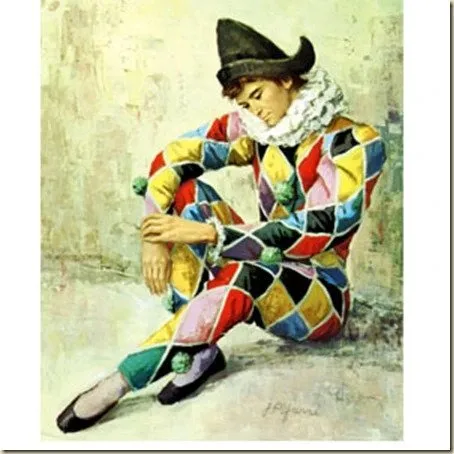
Source
It was a Sunday evening. Vespers were over, the races were beginning, and there was no shortage of riders to compete for victory. But the mare, red as blood, flew faster than the wind, and it had arrived before the other animals had gone a hundred steps yet. Then the people shouted:
“Long live the Man of All Colors!”
But the mare, red as blood, left faster than ever. An hour later, the Man of All Colors had returned underground, to his great castle.
The Man of All Colors became very sad again. Night and day he thought about what the eagle had told him. The Sunday after, the mare black as a crow noticed that her master was crying.
“Man of all colors, I know why you cry; but I can put you out of trouble. With me, you will win the second race, because I know a particular path to go underground. But I can only go there once, back and forth; and you must swear to come back here with me."
"Mare black as a crow, I swear to you by my soul."
"Well! Let's leave."
The mare as a crow left faster than the wind. However, she only arrived two hours later in the city of Babylon. It was Sunday evening, and vespers were over. The races had started an hour ago, and there was no shortage of riders to compete for victory. But the mare black as a crow left even faster than the mare red as blood, and she had arrived when the others were still halfway. Then the people shouted:
“Long live the Man of All Colors!”
But the mare black as a crow left faster than ever. An hour later, the Man of All Colors had returned underground, to his great castle.
The Man of All Colors became very sad again. Night and day he thought about what the eagle had told him. The following Sunday, the mare white as snow noticed that her master was crying.
“Man of all colors, I know why you are crying, and I could help you out of trouble. With me you would win the third race because I know a particular way to go underground; and I can pass there once, there and back.
"Well, save me from pain."
"I do not want to."
"Please."
The Man of All Colors prayed so much to the mare white as snow that she finally answered:
"Well, swear to come back here with me."
"Mare white as snow, I swear to you by my soul."
The mare white as snow left faster than the wind. However, she only arrived three hours later, limping, in the city of Babylon. It was Sunday evening, and vespers were over. The races were almost over, and there was no shortage of riders to compete for victory. The snow-white mare set off slowly and limping. Then the people shouted:
"It's a shame. The Man of All Colors will not arrive."
And the Man of All Colors despaired, and cried:
“Walk then, mare white as snow."
"I can't, I'm lame."
And the Man of All Colors still despaired, because three horsemen had only a hundred steps to go to gain victory. Then the snow-white mare whinnied, and left so quickly, so quickly, that no one could follow her with the eye. Time to say Amen, and she had arrived before all the other beasts. Then the people shouted:
“Long live the Man of All Colors!”
Source: L'Homme de Toutes Couleurs, from the French book Contes populaires de la Gascogne, tome 2, published in 1886
Part 1 - Part 2 - Part 3 - Part 4
Hello, my name is Vincent Celier.

I am writing translations of folk tales that I found in public domain French books, so that people who do not understand French may enjoy them too.

So, the Man of All Colors won the three races successively, with the three mares. There was a little suspense when the mare white as snow was lame (or pretended to be), but I think this was just to entertain children so they would think that he was not going to win the third race.
But, as the Man of All Colors promised to return to the castle after the race, we still don't know if and how he will be able to leave the castle permanently. Can you guess?

On this day, the Day of the Dead, let's finish the visit to the cemetery next to Kati's mother's house.
Some tombs have no names of individuals. For example, this one is for the Horváth family.
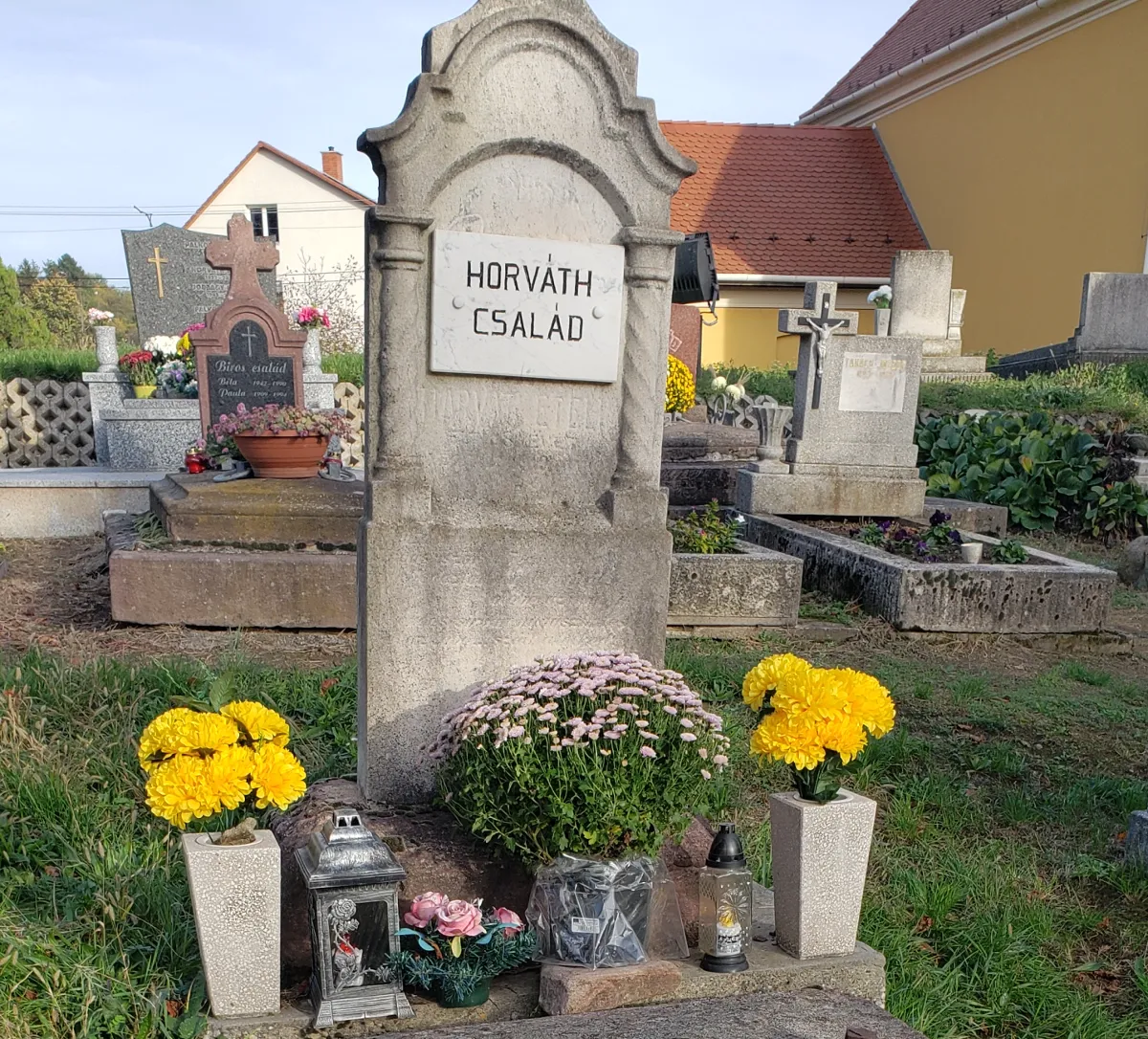
On this one, the two words Apu and Anyu mean Dad and Mom. Only the family knows who they are.
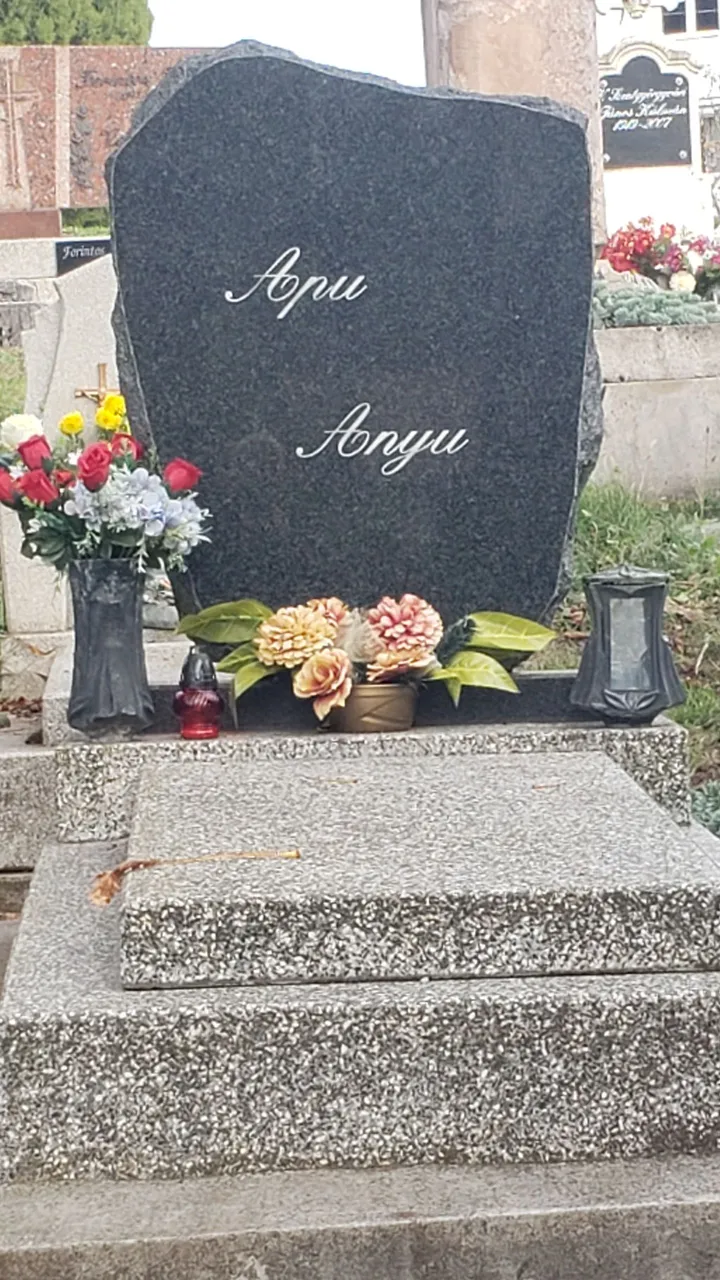
On this tomb, we have the name, but we don't know when the woman named Szente Ferencné (who was the wife of Szente Ferenc) died. We only know that she was 85 years old when she died.
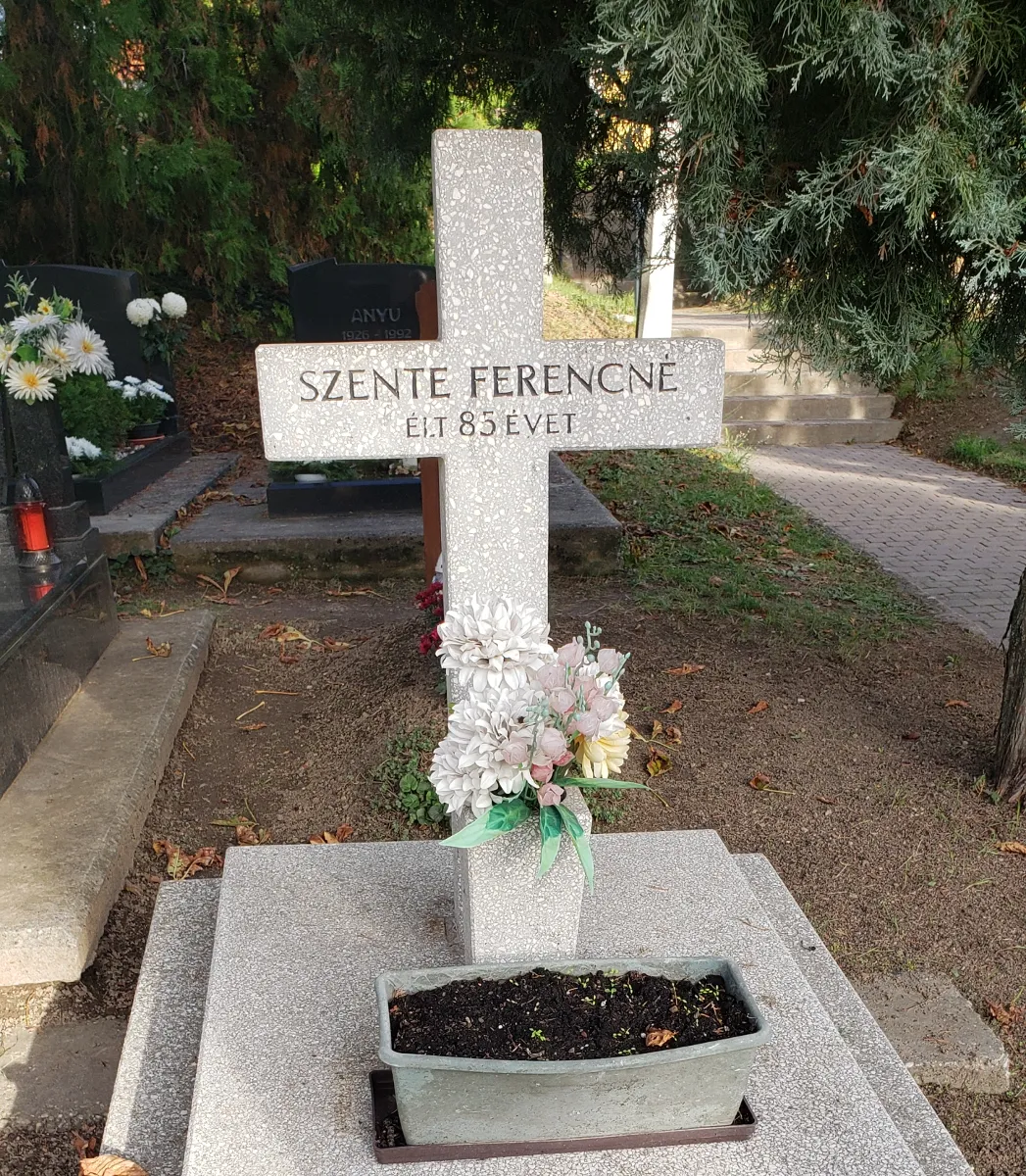
I did not find a tomb where the death was before 1915. There may have been some, but they were not readable.
The inscription on the tomb reads: Juliska Szekeres rests here, she lived for 18 years, she died on Nov 27, 1915.
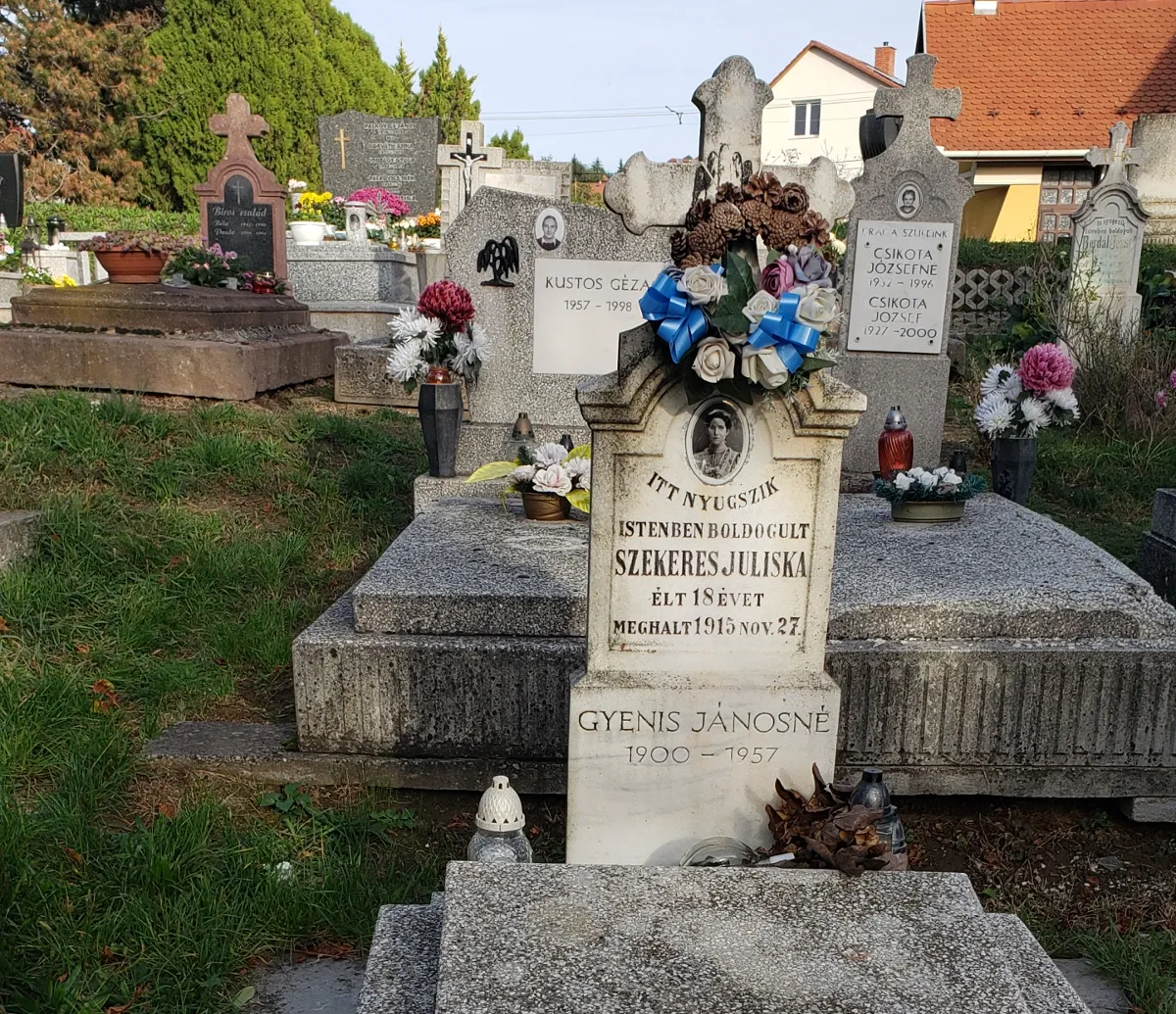
-- Vincent Celier